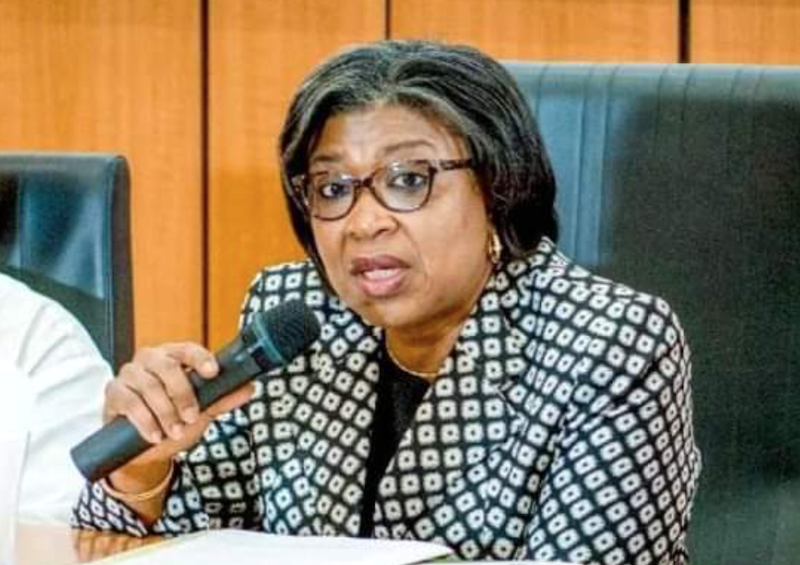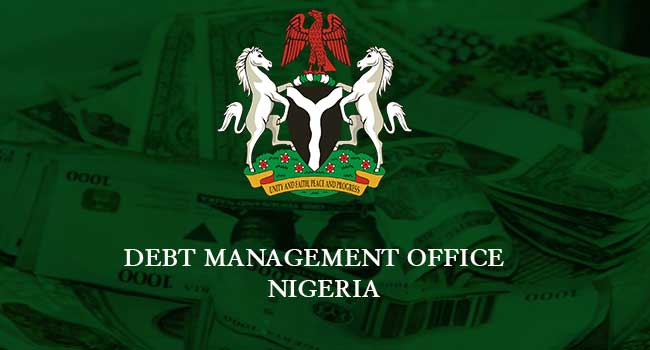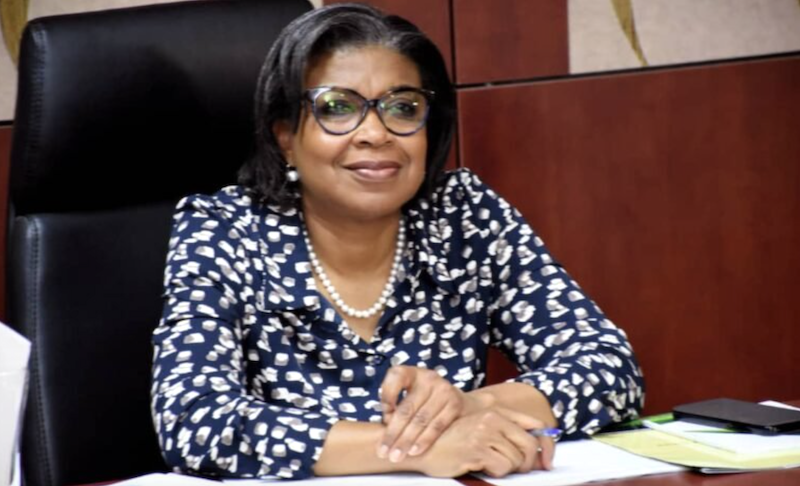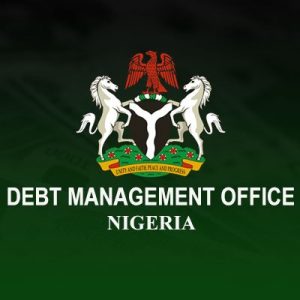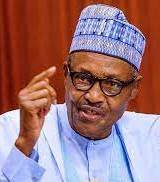The reality today is that Nigeria’s total debt, comprising both local and external stocks, is, according to Nigeria’s Debt Management Office (DMO), a whopping N107 trillion, which is humongous. The culprits for the ballooning of the debt are hugely the policy of subsidizing petrol pump prices and propping up the naira, origins of which date back about four decades ago,but were ended by President Bola Tinubu during his inaugural speech on May 29 last year.
Subsidizing electricity is another scam that has set our country back. The government was spending as much as 67% of the total cost of generating electricity in sustaining the regime of low tariff payment. According to NERC, N2.9t was being expended at N240b per month. That is prior to the current regime of withdrawing subsidy from 15%( 12m) consumers who will be paying a whooping 240% more per kilowatts. Even then, it is being claimed by NERC that the subsidy still being paid by government for those on Band B to E would be up to the tune of N1.6 trillion or N120b per month. A gradual withdrawal of subsidy in that utility had just commenced on April 3rd, with the 15% of electricity customers (12 million) consumers bearing the brunt by being billed what has been termed cost-reflective charges of N225 per kilowattss. That is over and above the N68 previously charged premium consumers now tagged Band A.
If the new price regime set by NERC prevails, subsidy for electricity consumers would in the process of coming to an end by beig unravelled. The third issue is the high level of corruption in the country, which is wreaking havoc on the economy and on society at large. Currently, according to Transparency International (TI), an international corruption monitoring agency, Nigeria ranks as number 145 out of 180 countries on the list of nations ridden with graft.
There is no need to dwell further on that since it was the fulcrum of the last administration which boasted of having zero tolerance for corruption. But it ended up crashing the economy, which slipped into recession twice in 8 years, unprecedentedly. That regime did so by ommission or commission by chasing a bull into a China shop, and as it were, and ended up doing more damage than good to the economy as investors took flight due to the hostile investment climate.
But thanks to the recent deft moves of both the Central Bank of Nigeria (CBN) Governor, Mr. Yemi Cardoso, and Finance/Coordinating Minister of the Economy, Mr. Wale Edun, confidence is returning to the nation’s economy, with investors showing interest, particularly via portfolio investors taking stakes in our treasury products owing to the offer of attractive rates reminiscent of the days of Dr. Ngozi Okonjo-Iweala, Nigeria’s former Finance and Coordinating Minister of the Economy, currently Director-General of the World Trade Organization (WTO).
Another scam, which is the fourth (4th), is the high cost of governance as reflected by the huge size of the national budget dedicated to servicing a burgeoning bureaucracy. In that respect, the Executive branch of government is making some efforts, for example, by reducing the number of officials in the entourage of top government officials traveling abroad. It has even gone further by banning non-essential foreign trips by public servants, as well as aiming to implement the Oransanye Report on rationalization of government agencies bloating recurrent budget owing to too many civil/public servants.
Having put in array the multiple scams hindering Nigeria from attaining her potentials, it is appropriate to commence a thorough dissection of the issues focused on in this discourse by taking a deep dive into the four (4) identified scams.
The first is subsidy on petrol and the naira, which is a practice perpetrated by the immediate past administration under the watch of President Muhammadu Buhari, which created a Ways and Means debt-an indiscriminate printing of the naira without financial backup, to a monumental tune of N30 trillion.
Apparently, that administration seemed hell-bent on retaining the decades-old petrol subsidy policy and was determined, as it were to zealously defend the naira with our country’s hard-earned dollar income while borrowing to carry out its primary and basic duties of paying civil/public servants’ salaries and providing infrastructure such as roads, airports, railway lines, etc.
The abuse of subsidies reached a point that income from the sales of oil/gas could no longer net off the burden of subsidy, such that the nation had to embark on unbridled printing of money that nearly made the Nigerian currency – the naira, look like ‘shit’ money in the manner that the Central Bank of Uganda Governor resisted printing more money at the command of then military head of state, Field Marshal Idi Amin Dada. As it may be recalled, by pointing out to his boss that “Ugandan money is now like shit money” he angered the autocratic head of state to the extent that he had to send the apex bank governor to the gallows as documented in the movie about the infamous reign of the dictator,Idi Amin Dada in Uganda.
So, when I hear critics of the removal of subsidy on petrol and merging of foreign exchange rates of both official and parallel markets for foreign currencies, demanding that President Bola Tinubu should produce the savings from ending those economically debilitating policies, I simply grimace and shudder at the level of misunderstanding of the concept of subsidy and its removal by pundits pontification and advocating for the retention or return of subsidy.
The truth is that no money is being gathered and saved in any particular account. That is because there is none to be saved in the first instance, since it is a case of applying the funds that could have been literally flushed down the drain in the name of subsidy on petrol and naira into interventions in other critical areas of governance needing a shot in the arm to be energized. Take for instance education loan, which is a program recently launched by the incumbent administration.
Opening up the space for all Nigerians to have access to education up to whatever level they have capacity for is such a big deal, that in my view it is being understated. In my reckoning, it is equivalent to the late sage, Chief Obafemi Awolowo’s declaration of and implementation of free education policy in the western region of Nigeria back in the days.
It is needless restating the fact that it is that policy of free education that is largely responsible for the leapfrogging of the Yoruba nation into the pole position of leadership in education amongst the ethnic nationalities that make up Nigeria. Without education loan, only God knows the number of current street urchins across the nation, particularly Lagos state, that could have been potential Robert Einsteins.
But they have become wasted and a threat to society because their parents had no financial means to put them through school to acquire education that could have enabled them to meaningfully and positively contribute to society.
In fact, if not for scholarship awards,(a variant of free education) most of the incredible professionals that dot our corporate and public sector landscape today would not have had the priviledge of obtaing Western education.
Arising from the above, I would argue that democratizing education by making it accessible to all Nigerians that are keen on obtaining academic knowledge is a big deal. Although its justification would not come to full positive manifestation in the lifetime of President Tinubu’s administration. But in another decade or two, the potential geniuses hitherto compelled to become ‘area’ boys and girls (thugs and prostitutes) who are empowered through student loans initiative to be processed into medical doctors, nurses, accountants, aeronautical and space engineers as well as artificial intelligence experts, would boost the human resources capital of Nigeria such that the country would be poised to be amongst the world’s top five economies by 2075 as recently predicted by Goldman Sachs analysts.
What those criticizing the end of subsidies seem oblivious of is the fact that in the past two decades or so, the handlers of our economy had been engaging in deficit financing. In other words, they have been borrowing financial resources locally and from abroad to fund the national budget because the projected incomes for each fiscal year being budgeted for have been falling short of the proposed expenditure.
Effectively, the benefits of the removal of subsidies are that the humongous funds hitherto provided in budget heads to subsidize some sectors deemed to be critical – maintaining low petrol pump price and low naira/dollar exchange rate – are being channeled into other areas considered to be equally critical and productive such as education instead of the profligacy of subsidizing consumption which petrol and naira amount to.
Apart from the fact that the action of President Tinubu has resulted in the reduction of petrol imported into our country by about 50% or one million litres per day, according to government sources, which has enabled the stemming of capital exportation out of our country to European suppliers of the commodity that was causing massive hemorrhaging of our treasury, it has boosted employment creation. That is in light of the fact that a huge chunk of our country’s imports, even up to 60%, by some accounts, are petroleum products and food based. As we can all attest, the end of petrol subsidy has also spurred investments in local refineries led by Dangote refinery with 650 million barrels per day capacity.
That is alongside a plethora of modular refineries springing up in the oil/gas-rich Niger Delta region stretching from around Benin City in Edo State to the Warri environs in Delta State, all the way down to Owerri in Imo State axis and the Port Harcourt zone in Rivers State, whose combined capacity is already leading to a crash in the price of diesel fuel for powering electricity generating sets that power manufacturing plants in factories and our homes.
How could all the aforementioned employment-boosting investments have been made possible without the end of petrol subsidy pronounced by President Tinubu at his inauguration on May 29 last year?
Furthermore, in the past couple of weeks, we have seen Dangote Refinery, which has come on stream and is now supplying Automotive Gas Oil (AGO) into the Nigerian market, crash the price of the commodity by about 30-40%, from N1,650 per litre to N1,000 per litre from the factory. The retailers are currently selling at about N1,350 per litre, which is presently the prevailing rate reflecting about N300 saving to consumers.
Since AGO is critical to transportation cost, referred to as logistics, and it constitutes about 30% of the input in the production and supply of goods, the hardships currently being experienced by the masses triggered by the spike in the cost of commuting and the resultant hike in the cost of living may soon start easing off in the coming weeks and months, all things being equal.
While envisaging the positive developments above, I had advocated that President Tinubu should sell off the government-owned refineries that have been undergoing turnaround maintenance at a humongous cost burden to our national treasury. That case was made in an article titled “Tinubunomics: Time to Sell Nigerian Refineries”which was published in my column of August 10 last year and widely reproduced in numerous traditional and new media platforms.
One would like to double down on that proposition of selling down the state-owned refineries contained in the referenced article, and the assertion is based on the dictum ‘government has no business being in business’ which implies that government must cease to engage in the business of running or operating refineries, which will be more efficiently and effectively carried out by the private sector, as evidenced by the advent of Dangote Refinery in the business of refining crude oil and distributing petroleum products cost-effectively and efficiently to Nigerians.
Capitalizing on the success recorded by Dangote Refinery and the handful of modular refineries now dotting the landscape of the Niger Delta, I am further proposing that the government-owned refineries in Port Harcourt and Warri in Rivers and Delta states should be sold to Mr. Jim Ovia or Mr. Tony Elumelu, founders, majority shareholders, and chairmen of Zenith Bank Plc and UBA Plc/HEIRS, or any other entrepreneurs who hail from that zone and have the capacity to acquire majority stakes in the three refineries in Port Harcourt and Warri and possess the ability to operate them.
By the same token, the refinery in Kaduna currently owned by the government should be sold to the likes of Alhaji Samad Rabiu of BUA Group and Alhaji Sayyu Dantata of Dantata Group, who currently operate conglomerates and appear to have the financial capacity and ability to operate them more efficiently and effectively.
To source the necessary expertise and personnel to operate the Nigerian refineries after purchase, there is a plethora of refineries located on the coastlines of Europe that target West African countries, including Nigeria, as the market for their products.
Fortunately for potential buyers of the local refineries as being proposed, refineries on the coast lines of Europe are now, according to a recent report by the international news agency Reuters, on the verge of shutting down following the arrival of Dangote Refinery that is poised to take over the markets hitherto controlled by the European firms.
The soon-to-be-laid-off personnel in the European refineries on the verge of becoming moribund would be available human resources that could be tapped into by Nigerian investors in the refineries. What is more, Nigerian local investors in the refineries being proposed for sale to local entrepreneurs could even offer the owners of the embattled and about-to-be-shutdown refineries in Europe stakes in the Nigerian refineries that has to be sold off by government to private investors.
Another scam that nearly brought Nigeria to its knees is the subsidy on electricity, estimated to be in excess of ₦2.9 trillion.
On multiple occasions in the previous years, and several times this year alone, the national electricity grid has collapsed. That is largely owed to the fact that the infrastructure for the transmission of electricity in our country dates back to the colonial days.
At some point, the utility firm was known as the Electricity Company of Nigeria (ECN) before it transformed into the National Electricity Power Authority (NEPA), and finally, the Power Holding Company of Nigeria (PHCN). It was centrally operated and was a sort of omnibus involved in generating, transmitting, and distributing electricity.
Those roles were performed abysmally, earning the organization the negative sobriquet “Never Expect Power Always” (NEPA) until 2013 when NEPA, through a privatization exercise, was split into three autonomous components, with each entity assigned the role of generating,transmitting, and distributing.
With the GENCOs engaging in generating electricity and DISCOs distributing the generated power firmly under the control of private sector investors, there were slight improvements in electricity supply. But there remains a snag and drag on the rest of the chain, which is that the transmission of electricity generated remained under the control of the government because unlike the generating and distributing aspects that were hived off and handed over to private investors in 2013, the government held onto the transmission aspect through an agency known as the Transmission Company of Nigeria (TCN).
That is where the national grid collapse has been occurring, manifestly the broken chain in the electricity supply sequence. That is because even though GENCOs currently generate about 12 megawatts, only about 4 megawatts can get to our factories and homes owing to poor transmission infrastructure coupled with the bureaucratic nature of civil servants operating the system. Why the TCN was not privatized at the time with the generating and distributing functions in 2023 beats me hollow.
When President Tinubu signed the new electricity act into law on 9th february this year, I had cause to interrogate the electricity power system in Nigeria with a view to identifying the clogs and proposing possible ways out of the conundrum in an article published in my column on.August 4 and subsequently on other media platforms titled “Tinunomics: Electricity Act 2023 As Nigeria’s lndustrial Game Changer”’
Obviously, the Minister of Power, Adebayo Adelabu, is working assiduously to unravel the conundrum of graft surrounding the electricity supply system in Nigeria, which dates back to the ECN days when equipment was presumed to have been supplied to the ECN but the equipment turned out to have been round-tripped. It is disheartening that the practice of corruption and inefficiencies still pervades the electricity sector even after it has changed hands from public to the private sector.
The Minister of Power, Adelabu, may be in a quandary as to how to rejig the system so that a single investor can be a player in all three aspects: generating, transmitting, and distributing aspects of the business, which is the practice all over the world but currently not the case in Nigeria since investors are limited to only single functions such as GENCOs and DISCOs, with TCN remaining in the purview of the government.
Apart from concessioning or selling off TCN to private investors to enable it to have funds to boost its infrastructure (now in deplorable condition) to forestall future grid collapse, how can investors be realigned to engage in all three aspects and be assigned zones to compete with each other as is the practice in other climes?
Cost-reflective tariff has already been introduced to about 15% of consumers designated as being on Band A by the Nigerian Electricity Regulatory Commission (NERC). It has promised that a minimum of 20 hours a day will be available to consumers on the A Band. Further promising that Bands B to E would be added in the cost-reflective charges in a graduated manner.
For Band A customers, the tariff has tripled from N68 to N225 per kilowatt-hour; hence, the matrix applied in arriving at that rate is being questioned. As things currently stand, it is only when that complex web, which appears as complicated as decoding the famous DA VINCI code, (that the electricity system seems to be tangled in) is resolved, that the sector, critical to the industrial takeoff of Nigeria, can be fully unraveled.
On corruption, the Nigerian federal government, under the auspices of the Office of the Special Adviser to the President on Policy and Coordination and Head of the Central Coordination Delivery Unit (CDCU), Ms. Hadiza Bala-Usman, on April 8th, launched a website for tracking and monitoring performance and delivery of services by Ministries, Departments, and Agencies (MDAs) of the government. I have had cause to write about the need for citizens’ involvement in fighting corruption by tracking the activities of government via its agencies’ actions and inactions.
That was extensively dwelt on in an article titled: “Killing Corruption With People, Power, and Technology In Nigeria,” published on August 9, 2016, in my column and also on other traditional and online platforms. The piece is also reproduced on page 454 of my new book: “Leading From The Streets: Media Interventions By A Public Intellectual, 1999-2019.”
In the piece, I referenced a similar app.used by the World Bank for the same purpose of combating corruption in other jurisdictions by noting that:
“One veritable tool that Nigeria is yet to fully harness in fighting corruption is technology. The blame could be placed squarely on the unstable electricity supply. Nonetheless, this would change soon with the ongoing privatization of power supply in Nigeria.”
To buttress my point, I referenced a report published by Huffington Post on 12/9/2011 and titled “Technology Is Helping The Fight Against Corruption.” The report was authored by Caroline Anstey, Managing Director of the World Bank Group, and Leonard McCarthy, the World Bank’s Integrity Vice President.
The duo noted that “There is no single quick fix for curbing corruption. But there are steps that can and should be taken to raise the cost of being corrupt to send a powerful message that corruption doesn’t pay. The World Bank executives concluded by stating that: “We already see how technology can make a difference. Take Indonesia, where an Urban Poverty Program, which distributes $150 million annually in World Bank and government funding, has successfully harnessed the Internet and Mobile phone technology to enhance project monitoring, transparency, and overall effectiveness.”
So, Ms. Bala-Usman, by launching the tracker (alongside other anti-corruption measures being undertaken by anti-graft agencies EFCC and ICPC), government appear to be on the right path to combating corruptiom with technology as opposed to naming and shaming that defined the immediate past administration. To that extent, corruption, as a scam on Nigeria and Nigerians, can be said to be in the process of gradually being unraveled.
Finally, high governance cost is another scam causing Nigeria to as it were punch below its weight. Following an uproar by Nigerians, President Tinubu has commenced the reduction of costs im the bureacracy by pruning the number of people in top government official’s entourage and even suspending non-essential travels by public servants.
Although it is not far-reaching enough, hopefully, the Special Adviser, Ms. Bala-Usman, will monitor and ensure that the executive order is adhered to . The FGN is also believed to be on track to implement the famous Oronsaye Report on streamlining of MDAs, which have overlapping functions and therefore constitute a drain and burden that result in high cost of governance. But the Legislative branch of government, which has not been as responsive as the Executive arm, has been receiving flak from the public as it remains a culprit.
That is principally because the majority of Nigerians believe that the cost of sustaining the National Assembly (NASS) is too high in terms of salaries and emoluments, which they deem as staggering. Remarkably, the negative perception got worse when it was revealed that an average of N160m was expended in procuring Toyota brand SUVs for each lawmaker numbering 469. Majority of Nigerians would have preferred that made in Nigeria SUVs were procured to reduce the exportation of capital and jobs from Nigeria to other countries from which the vehicles are imported.
Arising from the above, if NASS wants to become the darling of Nigerians, it must wean itself off the unbridled taste for imported items, which the masses believe is leading to the hemorrhaging of our already very lean treasury. When that happens, it would regain the respect of Nigerians, and that scam on Nigeria and Nigerians would also be on track to being unraveled.
To that end,the necessary first steps would be for both the Executive and Legislative branches to pass a law compelling MDAs and public officers to patronize Made-in-Nigeria products and services over and above imported ones. That would be in consonance with the popular dictum: charity begins at home. It also speaks to the general belief that if we do not patronize our home made products and services, nobody else will do so.
The concept is not novel since it hss been done in the past when peugeot was adopted as official car of government.
So, NASS and the Executive arm must lead by example by patronizing Made-in-Nigeria products and services to boost local production, improve Gross National Product (GNP), by extension Gross Domestic Product (GDP), resulting in jobs creation that would lead to prosperity and better standards of living for all.
That is the surest way of unraveling the high cost of governance and other ills or negative factors currently besetting our beleaguered nation and preventing her from being on even keel to leapfrog in socioeconomic and political development as the world hss been snticipating.
Magnus Onyibe, an entrepreneur, public policy analyst, author, democracy advocate, development strategist, alumnus of the Fletcher School of Law and Diplomacy, Tufts University, Massachusetts, USA, and a former commissioner in the Delta State government, sent this piece from Lagos, Nigeria.
To continue this conversation and more, please visit www.magnum.ng.

